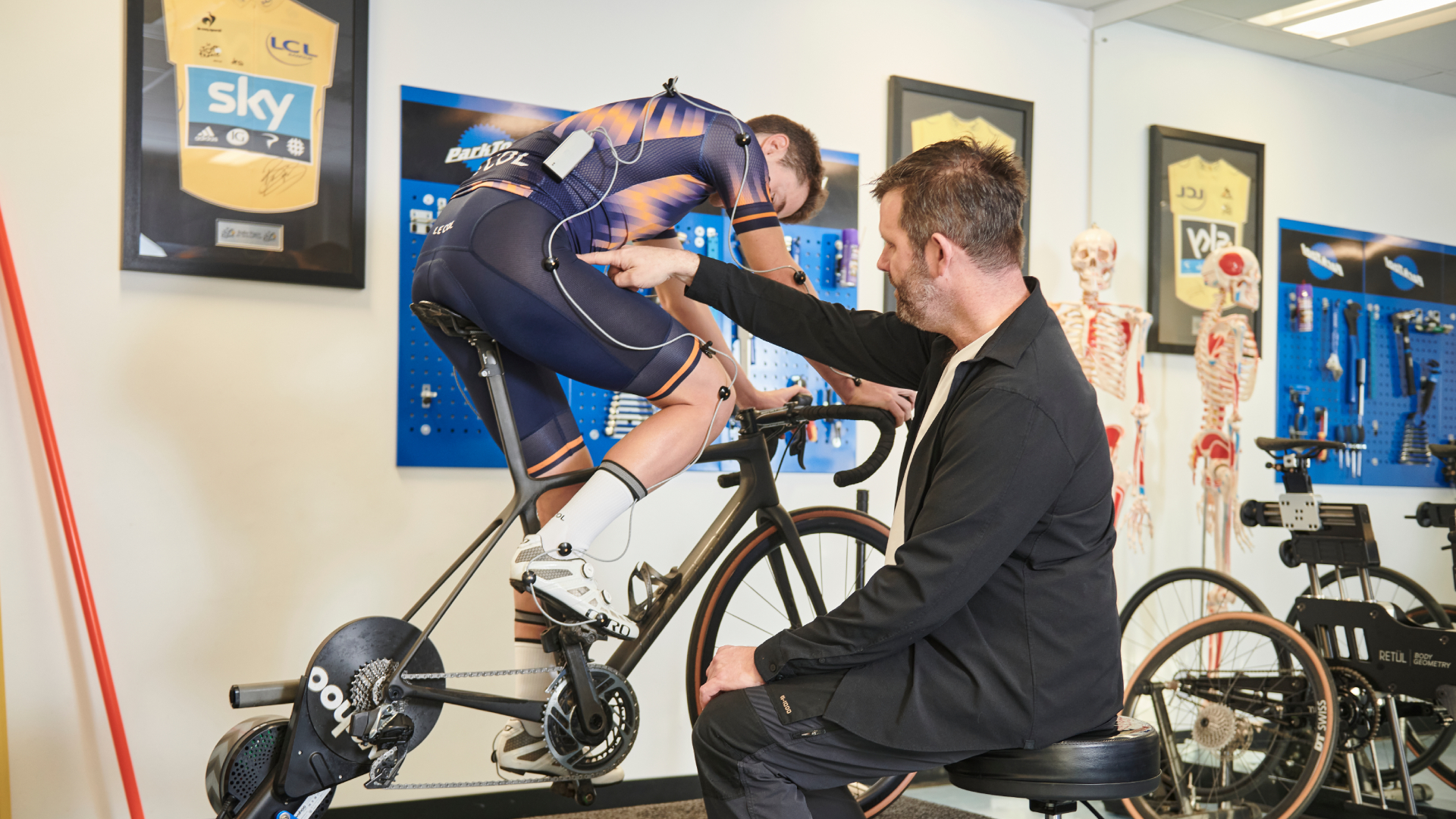Unveiling five hidden health insurance benefits every cyclist should know
From gym memberships or a bike fit, learn how to make the most of your health insurance as a cyclist


Navigating the labyrinth of American health insurance is seldom a joyride; it's often all paperwork, premiums and headaches. Yet, with the tedium and stress, there are hidden perks that help make you a better, healthier cyclist.
Benefits can range from basic injury coverage, reimbursement for coaching and even getting a proper bike fit. These can be a tool for you to further your cycling goals and ensure long term health.
Health insurance is essential for everyone, and helps to ensure access to quality healthcare, protect against financial hardship, promote preventive care, and provide peace of mind for individuals and families. But here are five benefits specifically with cyclists in mind.
Coverage in case of a crash for you and your bike

As a cyclist, it’s an unfortunate reality that one might come to fall or be involved in a crash or collision. Even if you’re young and healthy, the risk of a bike crash is a good reason to invest in health insurance. Should the unfortunate happen, knowing you’ll be taken care of physically and financially is a huge peace of mind. To get back in your best shape, physical therapy is covered by most insurances albeit often with a copay attached. A good physical therapist can help you stay healthy for years to come after an injury.
If you’re also a car owner with driver’s insurance, who pays for what service in such an instance can get confusing. There are some cases when you can be fully covered by the car’s insurance, but proving your innocence can be a drawn out process. Backing up your health insurance with a decent Personal Injury Protection (PIP) policy is your safest bet if you’re a road cyclist. Car insurance will often cover the damage to your bike and jump in to cover the hospital or doctor’s bills where your health insurance falls short.
Your insurance may pay for a cycling coach

A cycling coach can offer many benefits to help achieve your fitness and competitive goals. They can write you personalized training schedules, keep you accountable, and give expert guidance on strategy, nutrition and even logistics. However, their services are a financial investment. In some cases, however, your health insurance can help you cover the coaching fees. Acquiring a coach directly through health insurance requires proving that a coach is medically necessary.
This process starts with a thorough medical evaluation by a healthcare professional. They'll assess your medical condition, physical abilities, and whether you could benefit from specialized training or coaching. Next, you'll need to gather medical records and test results, along with any relevant notes from healthcare providers. These documents should outline why performance coaching is necessary. Maybe you have specific health conditions, rehabilitation needs, or fitness objectives. Your healthcare provider may also issue a "letter of medical necessity" to justify why performance coaching is crucial for your overall health and well-being.
Get The Leadout Newsletter
The latest race content, interviews, features, reviews and expert buying guides, direct to your inbox!
Or at least a gym membership

If your workplace doesn’t already offer an employee wellbeing program or gym discount, some insurance plans like Aetna and AmeriHealth offer reimbursements or savings on gym memberships. While Aetna’s benefits seem more rigid, AmeriHealth has a flexible rewards program through Husk that may even help pay for a bike.
Many companies offer their own wellness benefits that can be in the form of a flat reimbursement. My last job offered $150 a month towards “wellness”. I had latitude to use the $150 for anything, including cycling coaches. I could have even used it for a bike fit, which is difficult to justify to providers in comparison.
Bike fitting

You may be eligible to get a bike fit through your health insurance. Two things are necessary: the fitter needs to be a physical therapist, and the bike fit needs to be deemed a medical necessity. Back pain, previous injury or knee pain are common complaints that can lead to a diagnosis of a medically necessary bike fit. There are a few bike fitter/PT combos, many clustered in Seattle and Portland, including one at the University of Washington. There also seem to be many in Illinois state. It’s worth a quick google search to find bike fitters who take insurance in your area.
Before pursuing a bike fit and seeking insurance coverage, it's crucial to clarify your provider’s policy. Review your policy or contact your insurance provider directly to find which services fall within your coverage. Some insurance plans may include specific provisions for physical therapy or rehabilitation services, potentially encompassing bike fitting as part of a treatment regimen. They may contain preventative services too, where bike fitting may fit in. More and more providers are beginning to treat problems at the source before they grow.
If you're grappling with a medical condition or injury stemming from cycling or physical activity, it's prudent to engage with your healthcare provider. They can conduct an assessment to determine whether a bike fit is medically warranted for your treatment and recovery. Should your healthcare provider deem a bike fit necessary, requesting a prescription or referral for the service can bolster your case when seeking insurance coverage.
By adhering to these steps, individuals can navigate the process of exploring insurance coverage for a bike fit, ensuring that they receive appropriate care aligned with their healthcare needs.
Help with nutrition

Another aspect of health insurance, and wellness benefits is nutritional services. Dialing in what you eat can help your performance and your recovery. You can feel better on and off the bike. Nutrition services are widely available through insurance, to those who seek them out.
While paying for a bike coach can be tricky, getting a nutrition coach who takes into account your time on the bike is easy. “The Affordable Care Act mandates that health insurance covers nutrition counseling. Health insurance companies like Aetna, United Healthcare, BlueCross BlueShield, and Anthem all cover dietitian services,” according to Fay Nutrition, a tool to find covered dietitians. These providers can give you the supercharge to take charge of your dietary health. You can feel better, perform better, and recover better through a diet specified to you.
Mental health coverage

We all struggle with mental health at one point or another, but mental health is for more than just depression. It can help you contextualize and improve your life, on and off the bike. Therapy is usually covered in part or fully by health insurance. The number of mental health professionals on your specific policy can be limited. A mental health professional can help you as an athlete and a person. Preparing for events, balancing life and training, and mentality during races are all overlooked aspects of being a cyclist. A therapist forces you to dial in on these components of a healthy life, on and off the race path.
It pays to read the fine print

To wrap it up, understanding your insurance benefits as a cyclist is crucial for your peace of mind on the road or trail. Take the time to review your policies and chat with healthcare providers when necessary to ensure you're covered for everything from bike fits to cycling-related injuries. By taking these steps, you not only protect yourself but also contribute to a more cyclist-friendly insurance environment overall. So, whether you're out for a leisurely ride or pushing your limits, taking advantage of your benefits lets you focus on enjoying your cycling adventures

Thank you for reading 20 articles this month* Join now for unlimited access
Enjoy your first month for just £1 / $1 / €1
*Read 5 free articles per month without a subscription

Join now for unlimited access
Try first month for just £1 / $1 / €1

Charles Miller is an outdoor industry writer based in Salt Lake City. He is an avid cyclist, climber, fly fisherman and whatever else he can do to get outside. His work has been published on People for Bikes, Backpackers.com, Wuruwool.com and others.